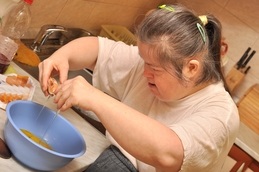Nearly half of learning disability homes need to improve

The Care Quality Commision (CQC) has published a national report on the performance of learning disability care home services in England, undertaken in response to last year’s BBC Panorama programme that went undercover to reveal shocking abuse occurring at Winterbourne View Hospital in Bristol.
Of the 145 facilities that received unannounced inspections, the found that 69 failed to meet recognised standards, with 41 showing minor concerns and 35 found to be fully compliant with no concerns.
Notable errors the 69 providers showed included the overuse of restraint, as well as a tendency to admit patients for unnecessarily long periods.
Dame Jo Williams, chair of the CQC, has urged care services to focus on the needs of individual people in order to achieve wide-scale improvements, while also looking to reassure the sector and the public that, although almost half of hospitals and care homes are falling short on standards, the problems found were nothing like as extreme as those uncovered at Winterbourne View:
She said: “People who use these services need care and support and they and their families need to be treated with care and respect. While our inspections found examples of good care, too often they found that services were not meeting the individual needs of people.
“This isn’t about developing more guidance – there’s plenty of evidence about what constitutes good care and good commissioning – it’s about making sure that providers, commissioners and regulators focus on care that is based on individuals.
“Although many of the services we inspected were intended to be hospitals or places where people’s needs were assessed, we found that some people were in these services for too long, with not enough being done to help them move on to appropriate community-based care.
“All too often, inspection teams found that people using services were at risk of being restrained inappropriately because staff often did not understand what actions count as restraint, and when restraint happened there was inadequate review of these putting people at risk of harm or abuse.
“While the findings published today highlight serious concerns about the nature of services for people with learning disabilities, we can offer some reassurance. There is no evidence that points to abuse on the scale which was uncovered at Winterbourne View Hospital.
“However every single case of poor care that we have found tells a human story and there is plenty of room for improvement to help a group of people whose circumstances make them particularly vulnerable.”
The CQC aims to make sure that the findings result in a wide-scale review of care plans and treatment, including a strengthening of the sector’s commitment to individualised care provision, and a drive towards more robust training in the use of restraint when dealing with challenging behaviours.
Latest News
 29-Jul-24
Dementia Bus gives carehome.co.uk staff insight into life with dementia
29-Jul-24
Dementia Bus gives carehome.co.uk staff insight into life with dementia
 01-Mar-24
Find out the top care homes in 2024
01-Mar-24
Find out the top care homes in 2024
 21-Mar-23
UK's top care homes in 2023 revealed
21-Mar-23
UK's top care homes in 2023 revealed
 03-Jan-23
carehome.co.uk launches free care helpline
03-Jan-23
carehome.co.uk launches free care helpline
 13-Dec-22
5 mins with Emily Whitehurst, chief operating officer for Constantia Healthcare
13-Dec-22
5 mins with Emily Whitehurst, chief operating officer for Constantia Healthcare